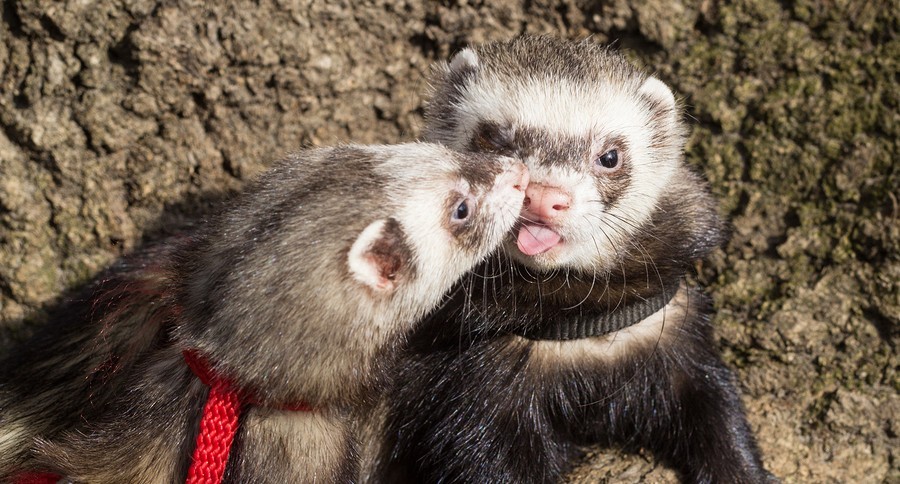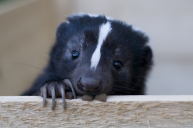Ferrets get a bad rap for being ferocious.
It is even illegal to own ferrets in California and Hawaii. But some of the myths surrounding this pet are completely false.
Ferrets are related to weasels, so you know they are smart and curious. They can make great pets and definitely don't deserve their bad reputation.
Here are some myths about ferrets that have been totally busted.
1. Ferrets are mean.
They are actually very social animals and are really silly. Have you ever seen ferret toys? An important part of ferret care is making sure they have plenty of enrichment "tools" like PVC pipes and hanging parrot toys.
2. Ferrets are wild.
Ferrets are actually domesticated and probably could not survive in the wild. They have pretty bad eyesight, they can only see red and blue, and would be vulnerable to predators in the wild.
3. They smell.
Not if you get their scent glands removed. Ferrets are related to skunks, which are also possible to have as pets if you get their scent glands removed.
4. Ferrets are hell for people with allergies.
They are hypoallergenic so they are actually better for people with allergies. And they're just as soft as a cat!
5. Ferrets are untrainable.
Untrue! You can train them to use a litter box and do tricks. They'll do anything for a treat!
6. Ferrets need a cage.
Nope. A lot of ferret owners let their ferret pets roam the house. Like puppies or kittens, the house must be semi safe (cover cords and vents).
7. Ferrets eat fruit.
Ferrets are actually carnivores. You can feed them a raw diet, consisting of chicken or meat on small bones, or a ferret kibble.
8. Ferrets are rodents.
No, they are part of the polecat family that includes weasels and, distantly, skunks.
9. Ferrets are illegal to own.
Only in California and Hawaii is it illegal to own a ferret. I once heard it was because they like the taste of human blood. That's ridiculous.
They are illegal because they are considered an exotic pet. California Fish and Game does not want importation of a non-native species that may populate if freed and, in turn, threaten native species' habitat and food sources. Hawaii fears the same.
10. Ferrets like to bite.
Ferrets that are well-adjusted to the household and are sufficiently socialized will not bite any more than other house pets.
Ferrets are no more dangerous than your average cat or dog. Just make sure you know where your keys are at all times; they are known to hide things.
Ferrets are becoming popular pets! If you're doing research and plan on bringing a ferret into your home, you should know about the veterinary care involved with these social animals.
According to the American Animal Hospital Association,
"Ferrets, like dogs and cats, are susceptible to rabies and should be vaccinated. They should also be vaccinated for canine distemper virus which can be fatal. Consult your veterinarian for recommended schedules and you can schedule a distemper vaccine appointment with your vet."
Adrenal disease is a common syndrome, usually affecting middle-aged to older ferrets (three to seven years old). This disease impacts their adrenal gland and your vet can provide more details but this is common so it should be on your radar.
What should your pet ferret eat?
Ferrets are carnivores and therefore require a high meat protein diet. Quality cat food or kitten foods bought at your local pet store may be used or specialty ferret foods are recommended. Ferret diets can also consist of fruits and veggies. Fresh water should always be available. And Hill's Science Diet makes a cat food that is recommended for young ferrets and older ferrets.
Lastly, the number one mistake most people make is assuming that ferrets are like cats and will naturally use the litter box. This is unfortunately not the case and having a second litter box available makes a big difference. Some experts say that the only cat litter safe for ferrets would be a paper pellet litter.




